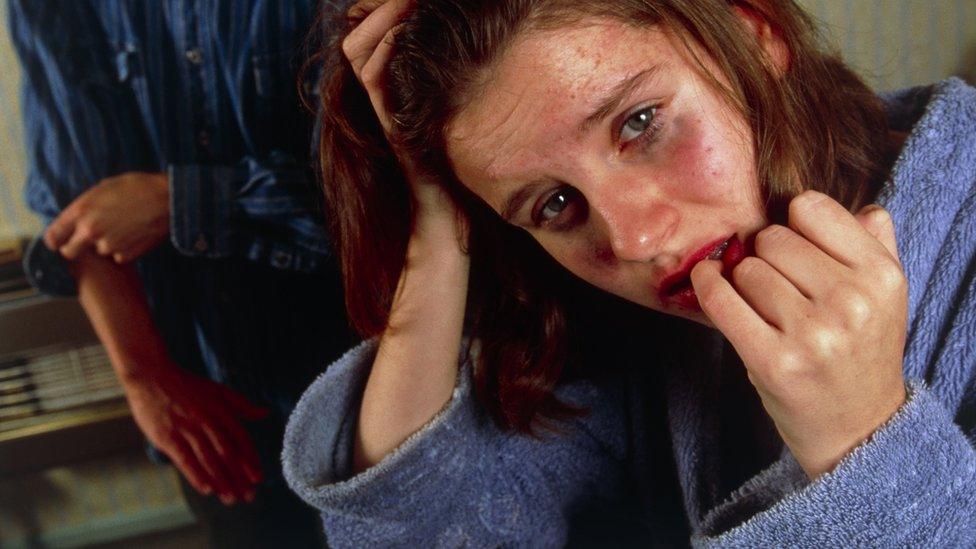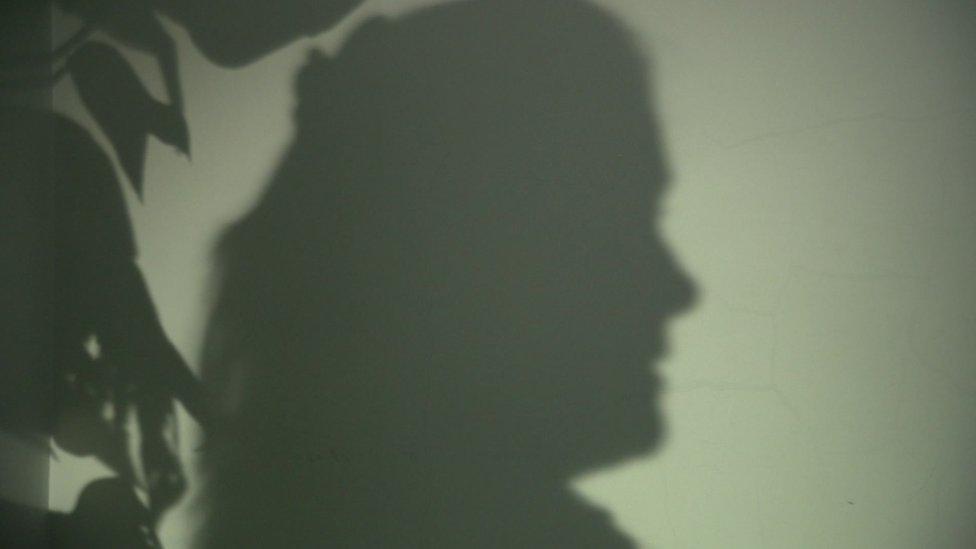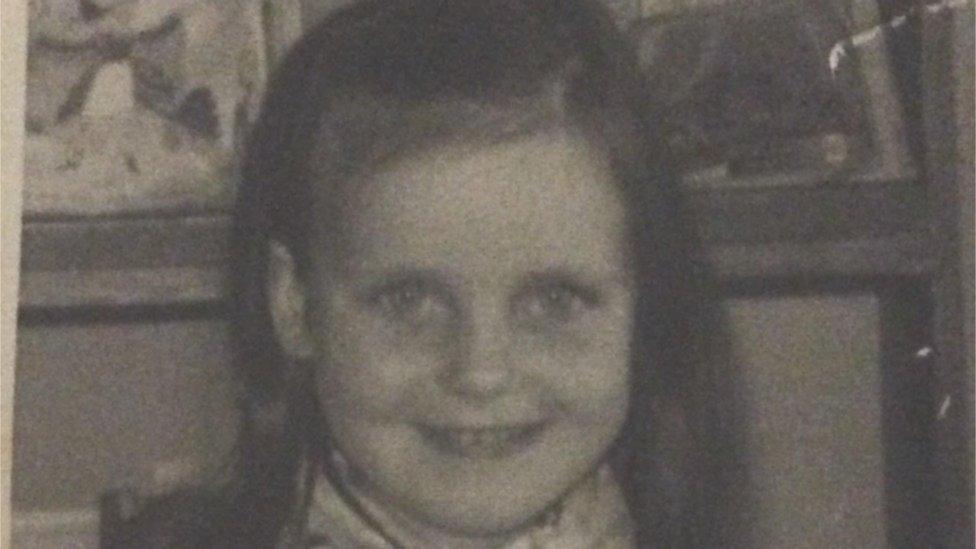'Same roof' rule: Victim 'over the moon' about law change
- Published
'I felt as though I didn't count. It was all right for him to do what he had done. He got put away for it but that was it'
A woman who fought for compensation after being sexually abused by her stepfather as a child has said she is "over the moon" the law is changing.
The government is scrapping the "same roof" rule, which blocked victims of violent crimes before 1979 from compensation if they lived with their attacker at the time of the incident.
The change applies to England, Wales and Scotland.
It follows a number of successful legal challenges against the rule.
A similar rule in Northern Ireland - known as the "same household" rule - is also being reviewed.
The change is part of a wider review of the Criminal Injuries Compensation Scheme, which was launched in September 2018.
The scheme makes taxpayer-funded payments to victims of violent crime.
The woman - not named for legal reasons and known as JT - was abused by her stepfather between the ages of four and 17 but was previously denied compensation because of the "same roof" rule.
The policy was originally designed to ensure perpetrators did not benefit from compensation paid to their victims.
However ministers have acknowledged it had an unfair impact on victims of crimes such as child sexual abuse, who had no choice about who they lived with.
The law was changed in 1979 so that future victims could claim compensation if they no longer lived with their attacker and were unlikely to do so again.
However it was not made retrospective, so those abused before 1979 were not eligible for compensation.
Now the government has introduced legislation to abolish the rule, so all victims abused by someone they lived with can reapply for compensation - regardless of when the attack took place.
'Fighting for so long'
In 2012 JT's stepfather was convicted of eight offences including rape and sexual assault and was jailed for 14 years.
At the time, JT said she could not believe she was not eligible for compensation. A relative who was also abused by the same man but did not live with him at the time was eligible.
"I knew it was unfair so I thought, 'I'm going to fight it'," she told BBC News.
In July 2018 she won a landmark court case against the "same roof" rule, and the right to claim compensation.
JT said she was overjoyed that the government was now changing the law.
"I've been fighting for so long, I never thought this would happen," she said.
"I just can't explain how happy I am to think that other people like me that may come forward can apply for compensation."
JT - who says she suffers from post-traumatic stress disorder, panic attacks and nightmares because of the abuse she experienced - is still waiting to receive her compensation.
"Until that money is in my hand I still can't quite believe [the rule] has been overturned," she said.
'Out-dated'
Victims Minister Edward Argar said the "same roof" rule was out-dated and unfairly denied access to compensation"
He said the change would help to ensure victims of crime get the support they need and deserve.
Baroness Newlove, Victims' Commissioner for England and Wales, said it would mean all victims of historic abuse would be treated equally.
"I have always felt that the rule was unfair," she said.
"It has caused unnecessary distress to many victims and survivors, especially within families, where some siblings have been eligible for criminal injuries compensation and yet others have not, solely on the grounds of the date on which, the abuse took place."
- Published9 September 2018

- Published11 June 2018

- Published1 October 2017
